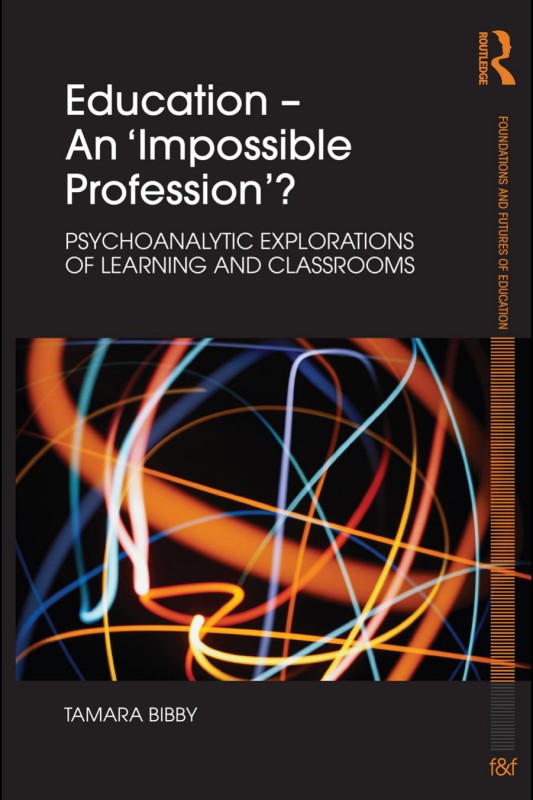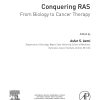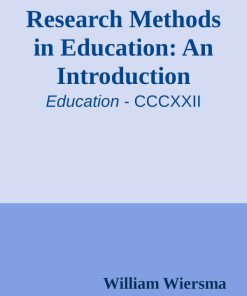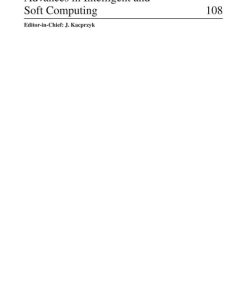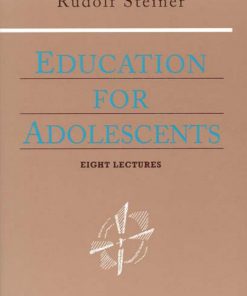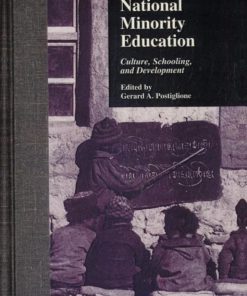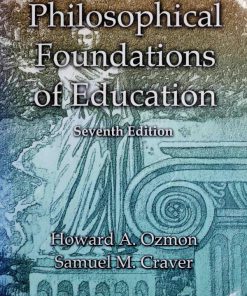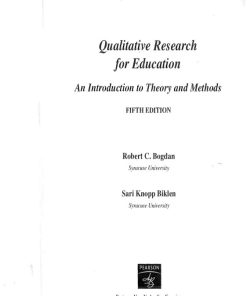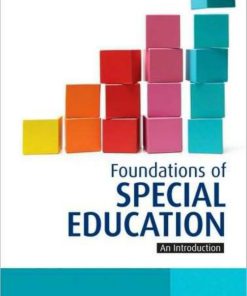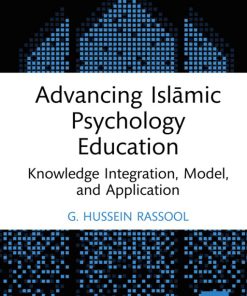(Ebook PDF) Education An Impossible Profession 1st edition by Tamara Bibby isbn 9781136920226 1136920226 full chapters
$50.00 Original price was: $50.00.$25.00Current price is: $25.00.
Authors:Bibby, Tamara. , Series:Education [130] , Tags:Education; Politics & IR; Sociology & Social Policy , Author sort:Bibby, Tamara. , Ids:9780203844458 , Languages:Languages:eng , Published:Published:May 2011 , Publisher:Rouledge
(Ebook PDF) Education An Impossible Profession 1st edition by Tamara Bibby- Ebook PDF Instant Download/Delivery. 9781136920226, 1136920226
Instant download Full Chapter of Education An Impossible Profession 1st edition after payment
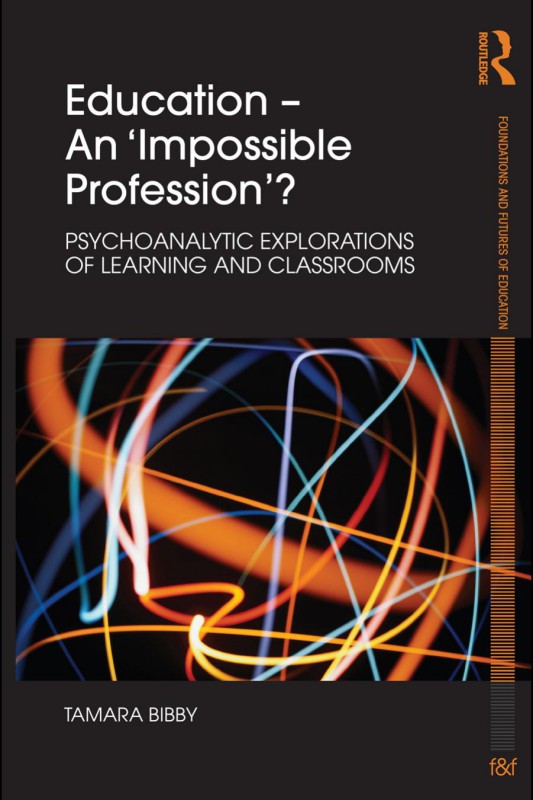
Product Details:
ISBN 10: 1136920226
ISBN 11: 9781136920226
Author: Tamara Bibby
In classrooms and lectures we learn not only about academic topics but also about ourselves, our peers and how people and ideas interact. Education – An Impossible Profession extends the ways in which we might think about these processes by offering a refreshing reconsideration of key educational experiences including those of:
- being judged and assessed, both formally and informally
- adapting to different groups for different purposes
- struggling to think under pressure
- learning to recognise and adapt to the expectations of others.
This book brings psychoanalysis to new audiences, graphically illustrating its importance to understandings of teaching, learning and classrooms. Drawing on the author’s original research, it considers the classroom context, including policy demands and professional pressures, and the complexity of peer and pedagogic relationships and interactions asking how these might be being experienced and what implications such experiences might have for learners and teachers.
The discussions will be of interest not only to teachers, leading-learners and teacher-educators, but also to individuals interested in education policy, professional practice and theories of education.
Table of Contents:
- 1 An introduction
- Where this book comes from
- What it is and what it is not
- Key ideas
- The dynamic unconscious
- The defended subject
- We are psychosocial beings
- Some difficulties with these ideas and responses to those difficulties
- The research base of the book
- The structure of the book
- 2 The primary task of the school?
- The primary task of the school in relation to learners and their carers
- The creation, control and transmission of knowledge
- The development of the child
- The overlay of knowledge on the developing child
- The internal objects in teachers’ inner representational worlds
- The social defences of the school
- Compliance
- Systematicity
- Fragmentation
- Moving forwards
- 3 Mirror, mirror on the wall
- The mirror in psychoanalysis
- Mirror, mirror on the (classroom) wall, who am I?
- ‘Good’ mirroring
- More problematic mirroring
- Negative mirroring and humiliation
- An absent mirror
- Being overlooked
- Conclusion
- 4 Accountability
- Donald Winnicott, a facilitating environment, play and creativity
- A facilitating environment and a ‘true’ self-structure
- A failed facilitating environment and a ‘caretaker’ self-structure
- Conclusion
- 5 Tall poppies and shrinking violets
- Groups to learn in
- What is a group?
- What holds a group together?
- Defining the group
- Establishing ‘the untouchables’
- Policing the boundaries
- Ambivalence and groups
- To belong or to shine?
- The desire to belong, the terror of dependency
- Opting out: wanting not to be part of a group
- Taking care not to stand apart: keeping your head down
- Getting subsumed, becoming invisible
- Feeling excluded
- Conclusion
- 6 Group processes
- Wilfred Bion and the basic assumption groups
- Dependent groups
- Pairing groups
- Fight/flight groups
- A warning against systematicity and transference
- Cheating in the dependent maths group?
- Being a leader
- Conclusion
- 7 When does the lesson start?
- What does it mean to think and to know?
- Kleinian object relations
- Little Dick starting to think
- Bion’s theory of thought and thinking
- The growth of thought and (the failure of) symbolisation
- Putting this into an educational context
- ‘But I don’t get it Miss!’
- Good knowledge and bad knowledge
- Creating space to think
- Play and playfulness
- Collaboration and displacement
- Conclusion
- 8 But I think best with my friends
- Containment and holding
- Jessica Benjamin and the intersubjective third
- A third, intersubjective space between us
- A position of complementarity: you or me, doer or done to
- Pedagogic relationships
- Is this what democracy looks like?
- What kinds of talk are possible here?
- On being a difficult character: Rezwana’s experience
- If it could only be like this: Rani’s lament
- Conclusion
- 9 Being ‘good-enough’ and taking the risk to ‘fail better’
- The price of perfection
- Idealisation
- Hate
- Aggression
- Being ‘good-enough’: disillusion, weaning, guilt and reparation
- Accepting loss: mourning and the work of reparation
- Conclusion
People also search:
impossible profession
professor impossible
impossible education
education is the premise of progress meaning
teaching is an impossible job
You may also like…
eBook PDF
(Ebook PDF) Education and Educational Technology 1st edition by Yuanzhi Wang full chapters
eBook PDF
(Ebook PDF) Education for Adolescents 1st edition by Rudolf Steiner 9780880104050 full chapters

